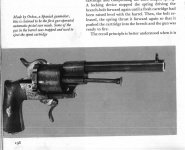The two main reasons why former Spanish colonies have a greater percentage of people of Amerindian descent are :
1) The only two big and populous pre-Columbian empires in the Americas, the Aztec and Inca empires, became Spanish colonies. Their population densities contrast sharply with that of the nomadic tribes of North America. Nomadic hunter-gatherers just cannot sustain big populations.
Compare now the size of what became the United States with the size of what became Mexico and Peru. Even if it was more sparsely populated, the huge size of it compensates.
If you think that today's difference of percentage between Amerindians and other US citizens is solely due to massacres, you are badly deluded.
If you think that this percentage would not be quite different today had not those massacres and segregation of survivors happened you are the one who is badly deluded.
2) In the first century of colonisation, the Spanish massacred or enslaved a lot of Amerindian men, while marrying, having sex with or raping the native women. It didn't happen everywhere, but the practice was widespread enough for the population of many Latin American countries to become mostly
mestizos.
Unfortunately for your arguments, we have censuses from the times when these countries were still under Spanish control, and they show that Amerindians were in fact the majority of the population. In the last Spanish census of Mexico (1810, almost 300 years after the conquest), for example, Amerindians still made up at least 60% of the population.
Plus you are taking modern censuses of these countries at face value, when it's well-known that many acculturated Amerindians pass as "Mestizo" (this goes back to even the times when Spain still controlled these nations.) Read up on the topic of acculturation and "cultural Mestizos". Amerindians are certainly more common than the "official" numbers show.
About
80% of Mexicans are also mestizos, while approximately 10% are "fairly pure" White Europeans and 10% are Amerindians.
That study was based on "300 mestizos in the Mexican population." What other results did they expect to find by studying only "Mestizos"?
If the Y-chromosomes and mtDNA were balanced between European and Amerindian types, we could assume that the two ethnic groups mixed peacefully with each others. However, the absolute dominance of Spanish paternal lineages and Amerindian maternal lineages leaves no doubt that the process was a violent one which eliminated male Amerindians from the equation.
Supposing that what you claim is true, that would still hardly be the only conclusion that can be reached. Most of the people Spain sent to the New World were soldiers and priests (i.e. they were men.) Spain seldom sent women to its possessions. It's only natural that sooner or later the soldiers who permanently settled in those lands would intermarry with the local women. It doesn't necessarily imply it has anything to do with a "violent process". The majority of Amerindian casualties during the first centuries of "contact" were because of disease, not war. After these countries became independent from Spain the "Mestizo" populations increased (as shown from the Spanish censuses.)
Incidentally, I am not American, nor British, nor French, nor Dutch. I have no reason by my nationality to be more biased towards the Spanish or the French or the British or the Americans in this argument. My country didn't have any colonies in the Americas either. I am commenting it from a detached and neutral point of view.
You don't have to be from a country that was a former "rival" of Spain to uncritically accept the "black legend". Lots of people who have nothing to do with those countries actually believe it. Those rival nations made quite sure to spread this false image of Spain and its supposed "atrocities" in the New World. Which legend, I repeat, has been aptly criticized by modern scholars as hypocritical, considering that the nations who spread this propaganda weren't exactly "saints" themselves, and in fact were actually worse for the native populations than the Spanish were.



